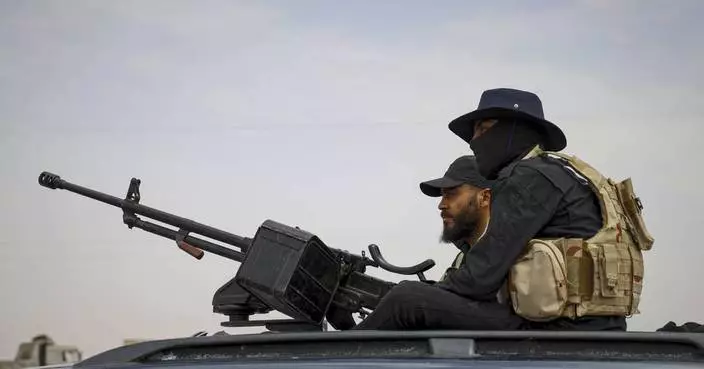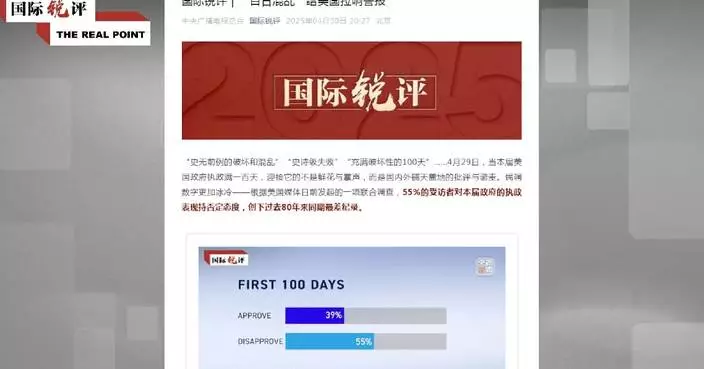BEIRUT (AP) — Lebanese authorities detained several people who were allegedly planning to launch rockets into Israel and seized the weapons, the military said Sunday.
The army said the arrests were linked to other detentions announced earlier this week. It added that as military intelligence was investigating that case they got information that a new rocket attack was being planned.
The army said troops raided an apartment near the southern port city of Sidon and seized some of the rockets and the launchers and detained several people who were involved in the operation. It said they were referred to judicial authorities.
Authorities on Wednesday detained several people, including a number of Palestinians, who were allegedly involved in firing rockets toward Israel in two separate attacks in late March that triggered intense Israeli airstrikes on parts of Lebanon. Lebanon’s Hezbollah group denied at the time that it was behind the firing of rockets.
Meanwhile on Sunday, a series of Israeli strikes in southern Lebanon killed two people, the Lebanese Civil Defense said in a statement. The Israeli army said in a statement that it killed Hussein Ali Nasr, whom it described as the deputy head of Hezbollah’s Unit 4400. Israel said Nasr helped smuggle weapons and funds into Lebanon via “Iranian operatives,” including through Beirut airport.
In a separate incident, three Lebanese soldiers were killed after ammunition a Lebanese army vehicle was carrying exploded, the army said in a statement. The circumstances in which the explosion happened were unclear.
Since a November ceasefire ended a 14-month war between Israel and Hezbollah, Israeli airstrikes have killed scores of people in Lebanon including civilians and Hezbollah members. Israel says it’s targeting Hezbollah holdouts in southern Lebanon.
Hezbollah leader Naim Kassem said Friday that its fighters will not disarm as long as Israeli troops remain in southern Lebanon and the Israeli air force regularly violates Lebanese air space.
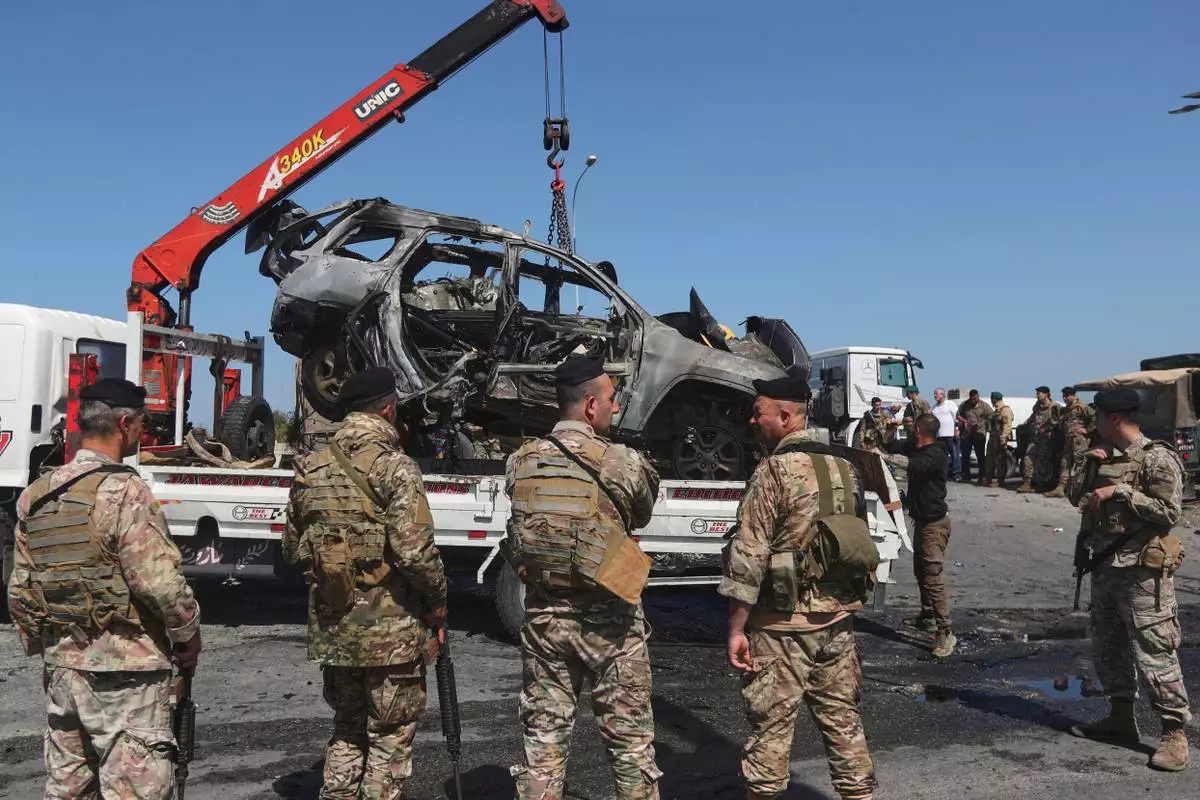
Lebanese army soldiers stand guard as workers use a crane to remove a charred car that was hit by an Israeli strike, in the southern coastal town of Ghazieh, Lebanon, Friday, April 18, 2025. (AP Photo/Mohammed Zaatari)
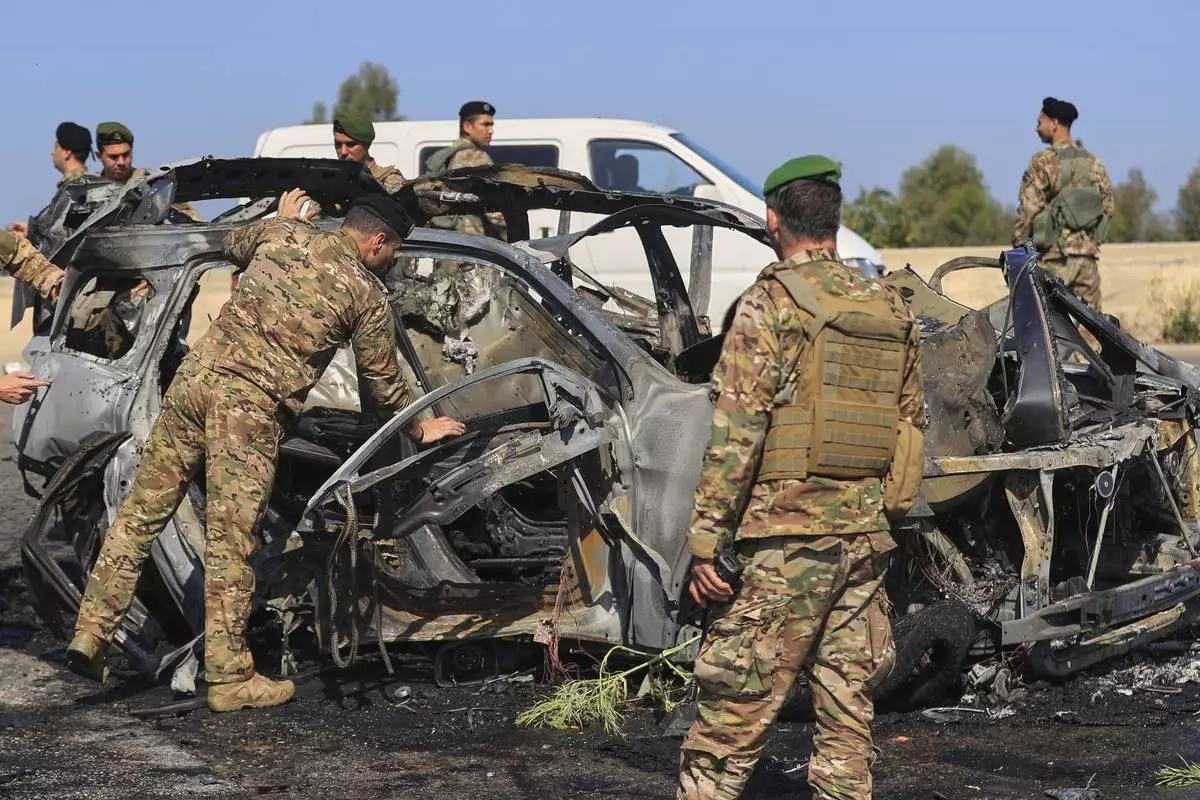
Lebanese army soldiers inspect a charred car that was hit by an Israeli strike, in the southern coastal town of Ghazieh, Lebanon, Friday, April 18, 2025. (AP Photo/Mohammed Zaatari)
THE HAGUE, Netherlands (AP) — The top United Nations court on Friday wraps a week of hearings on what Israel must do to ensure desperately needed humanitarian aid reaches Palestinians in Gaza and the occupied West Bank.
Last year, the U.N. General Assembly asked the International Court of Justice to give an advisory opinion on Israel’s legal obligations after the country effectively banned the U.N. agency for Palestinian refugees, the main provider of aid to Gaza, from operating.
Experts say the case could have broader ramifications for the United Nations and its missions worldwide.
The hearings are taking place as the humanitarian aid system in Gaza is nearing collapse and ceasefire efforts remain deadlocked. Israel has blocked the entry of food, fuel, medicine and other humanitarian supplies since March 2. It renewed its bombardment on March 18, breaking a ceasefire, and seized large parts of the territory, saying it aims to push Hamas to release more hostages.
Israel denies deliberately targeting civilians and aid staff as part of its war with Hamas and did not attend the hearing. The country did provide a 38-page written submission for the court to consider.
The hearings focused on provision of aid to the Palestinians, but the U.N. court's 15 judges could use their advisory opinion to give legal guidance on the powers of the world body.
“The court has the opportunity to clarify and address questions about the legal immunities of the United Nations,” Mike Becker, an expert on international human rights law at Trinity College Dublin, told The Associated Press.
Advisory opinions issued by the U.N. court are described as “nonbinding” as there are no direct penalties attached to ignoring them. However, the treaty that covers the protections that countries must give to United Nations personnel says that disputes should be resolved through an advisory opinion at the ICJ and the opinion “shall be accepted as decisive by the parties.”
“The oddity of this particular process,” Becker said, “is a clear response to any argument that the opinion is nonbinding.”
The resolution, sponsored by Norway, seeks the ICJ’s guidance on “obligations of Israel … in relation to the presence and activities of the United Nations … to ensure and facilitate the unhindered provision of urgently needed supplies essential to the survival of the Palestinian civilian population.” The United States, Israel’s closest ally, voted against it.
Israel’s ban on the agency, known as UNRWA, which provides aid to Gaza, came into effect in January. The organization has faced increased criticism from Prime Minister Benjamin Netanyahu and his far-right allies, who claim the group is deeply infiltrated by Hamas. UNRWA rejects that claim.
“We cannot let states pick and choose where the U.N. is going to do its work. This advisory opinion is a very important opportunity to reinforce that,” Becker said.
Whatever the judges decide will have an impact beyond the current situation in Gaza, according to Juliette McIntyre, an expert on international law at the University of South Australia. “Are these immunities absolute or is there wiggle room? This is useful for where United Nations personnel are working in other places,” McIntyre told AP.
An authoritative answer from the World Court can have influence beyond judicial proceedings as well. “Every time a norm is breached, the norm gets weaker. The advisory opinion in this case could push the norm back,” said McIntyre.
In separate proceedings last year, the court issued an unprecedented and sweeping condemnation of Israel’s rule over the occupied Palestinian territories, finding Israel’s presence unlawful and calling for it to end. The ICJ said Israel had no right to sovereignty in the territories, was violating international laws against acquiring territory by force and was impeding Palestinians’ right to self-determination.
According to McIntyre, the arguments presented this week reflect the opinion handed down just nine months ago. “Now the starting premise is that Israel is illegally occupying all of Palestine,” McIntyre said.
On Monday, the Palestinian delegation accused Israel of breaching international law in the occupied territories and applauded the move to bring more proceedings to the court. “Our journey with the international institutions, be it Security Council, the General Assembly or the ICJ, is we are building things block on top of another block while we are marching towards the accomplishment of the inalienable rights of the Palestinian people, including our right to self-determination, statehood, and the right of the refugees,” Palestinian U.N. envoy Riyad Mansour told reporters.
Israel has denied it is in violation of international law and said the proceedings are biased. Israeli Foreign Minister Gideon Saar hit back at the case during a news conference in Jerusalem on Monday. “I accuse UNRWA, I accuse the U.N., I accuse the secretary-general and I accuse all those that weaponized international law and its institutions in order to deprive the most attacked country in the world, Israel, of its most basic right to defend itself,” he said.
The court is expected to take months to deliver its opinion.
—— Associated Press writer Mike Corder in The Hague contributed to this report.
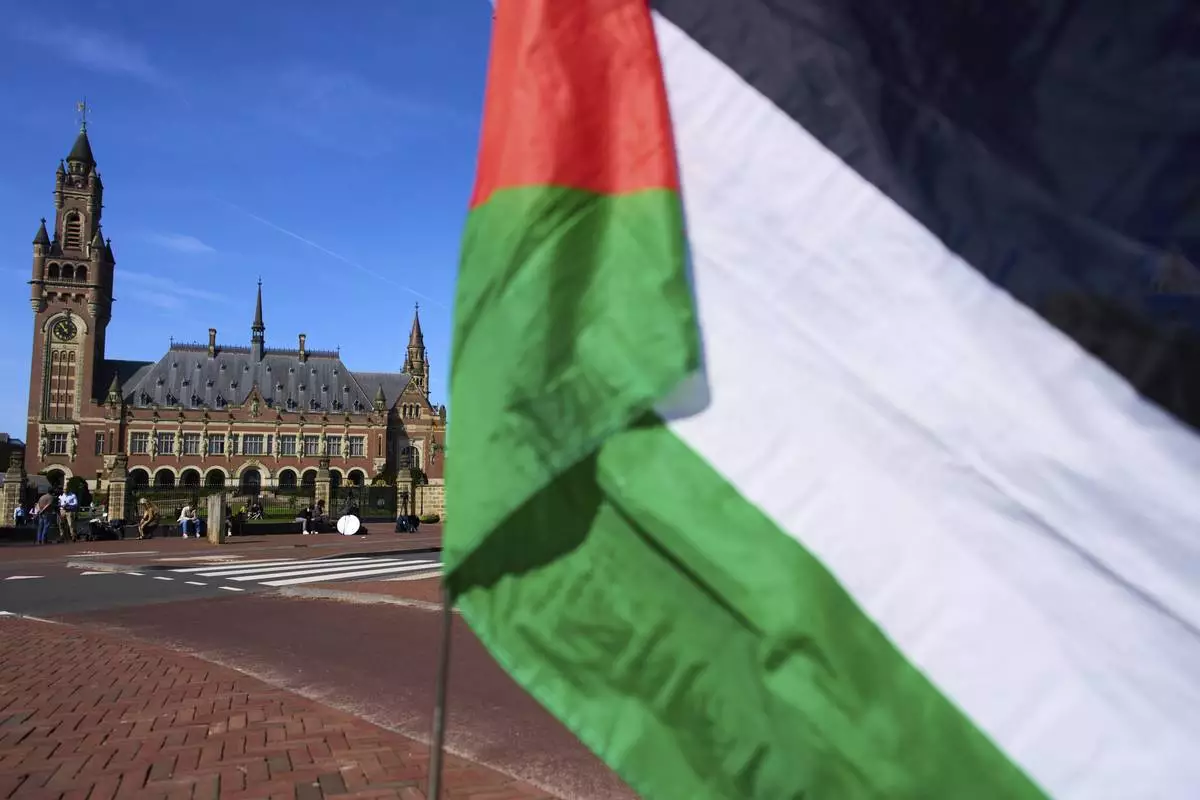
A Palestinian flag flies outside the International Court of Justice, rear, which opened hearings into a United Nations request for an advisory opinion on Israel's obligations to allow humanitarian assistance in Gaza and the West Bank, in The Hague, Netherlands, Monday, April 28, 2025. (AP Photo/Peter Dejong)






